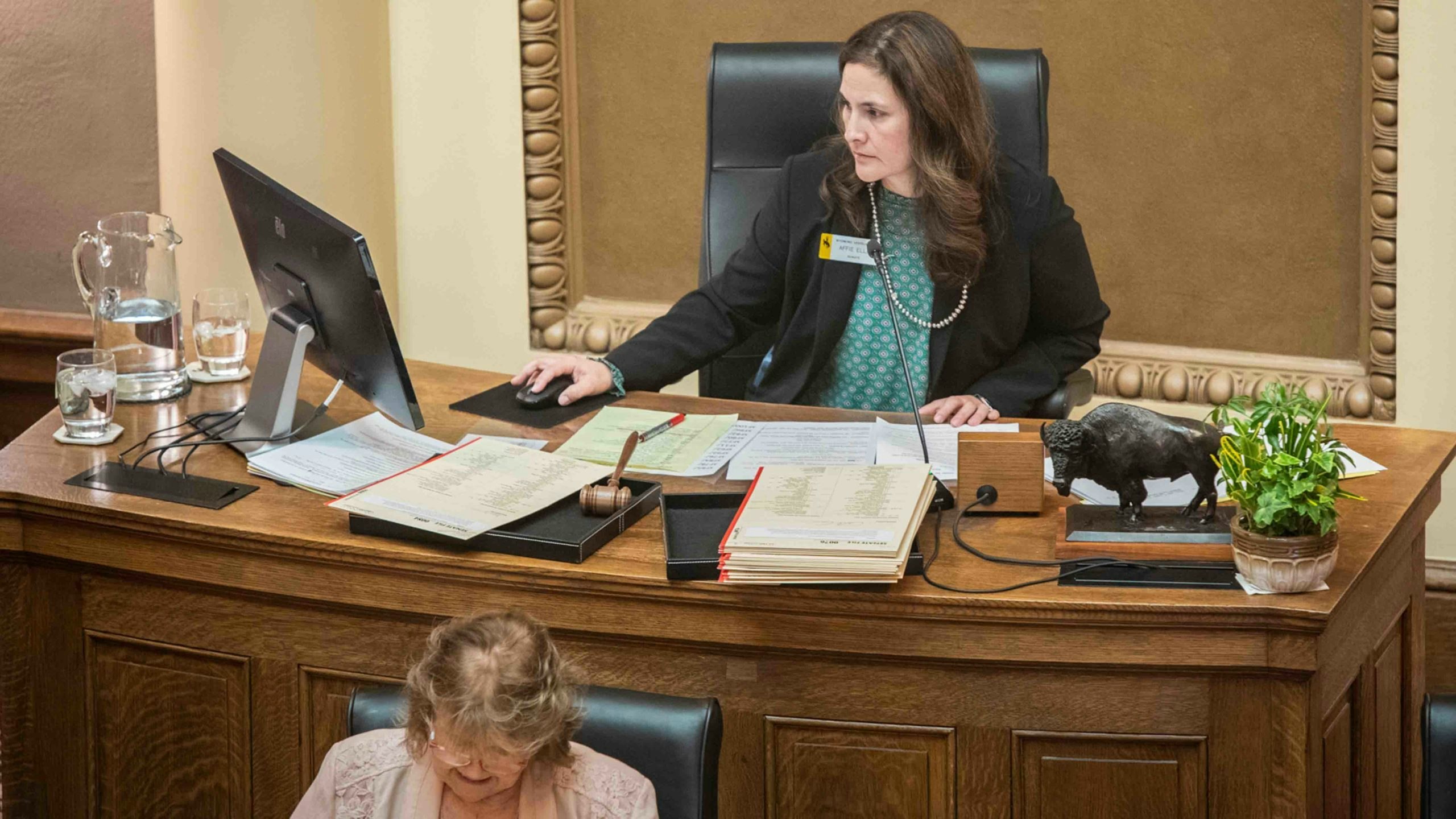State lawmakers are considering ways to exempt American Indians from sales tax payments for online purchases.
Wyoming Sen. Affie Ellis, R-Cheyenne, suggested the topic as a possible interim study March 8 during a meeting of the Select Committee on Tribal Relations.
The new legislation would ensure that “if you’re an Indian person and you’re purchasing something (online) that would normally be subject to state sales tax, on the reservation, then you are exempt,” said Ellis, who also co-chairs the committee.
“I think we’ve got enough information to pursue this a little more and have some conversations.”
Enrolled tribal members shopping at physical locations on the Wind River Indian Reservation in central Wyoming do not pay sales taxes. But if they shop off reservation lands, they do.
According to the Wyoming Department of Revenue, non-natives can be subject to taxation on reservation purchases, and retailers pay those collected funds back to the state.
Hines General Store, a main retailer on the reservation, declined to comment on the system.
Committee co-Chair Rep. Lloyd Larsen, R-Lander, directed the legislative service office to study the issue further.
“That’s a worthy conversation to have,” Larsen told Cowboy State Daily in a later interview. “For all entities involved as well as the state.”
If online vendors neither exempt tribal members nor remit their taxes back to the Northern Arapaho or Eastern Shoshone tribal governments, said Larsen, it could cause legal complications later on.
“It would really be unfortunate if we got decades down the road and then realized all these sales taxes from Fremont County, that perhaps should have gone to the reservation, were in fact distributed to the county – and then the county would have to pay back some sales tax,” Larsen said.
Under Wyoming law, companies selling products online must pay Wyoming sales taxes if their gross revenues from Wyoming sales exceed $100,000 or if they have more than 200 transactions with Wyoming residents.
For tax collection purposes, state law generally defines the place an online sale occurs as the buyer’s zip code.
Larsen said he was “confident” the Committee would try to craft legislation that either exempts reservation-based tribal members from online shopping taxes or finds a way to send those taxes back to the tribal governments – but he wasn’t sure how.
While the tribal town Fort Washakie has its own zip code, some locations in the nearby town of Arapahoe share zip codes with the off-reservation town of Riverton.
In her own interview, Ellis said developing a gateway scheme for determining the ethnicity of buyers has been “the exact problem” in the nation’s tax structure.
“A retailer shouldn’t have to look at someone and guess whether they’re Indian” in the brick-front shopping world, said Ellis, adding, “Now that we’re in this world of increasingly dominant online sales presence, that scheme just doesn’t make sense anymore.”
Ellis said she and the other Tribal Relations delegates will have to conduct much more research before determining whether tax exemptions or the remission of tribal members’ online taxes to the tribes is more appropriate.
“At this point we really need to start educating ourselves on what the law says,” said Ellis. “And start visiting with our tribal partners, with both tribal councils. It’s way too early for me to guess that outcome.”
The Eastern Shoshone and Northern Arapaho Tribes both dwell and maintain their own governments on the Wind River Indian Reservation.





